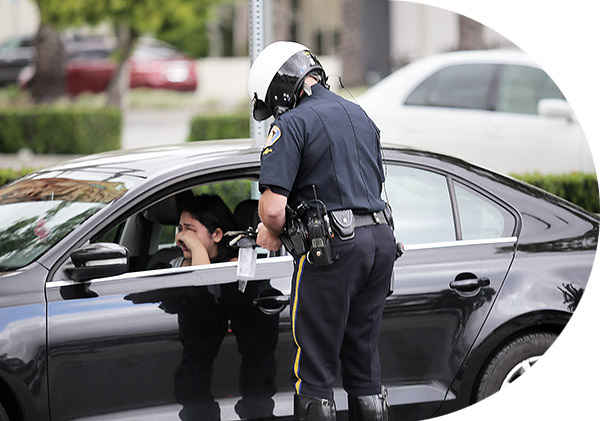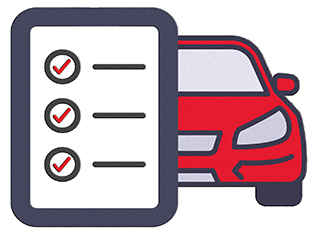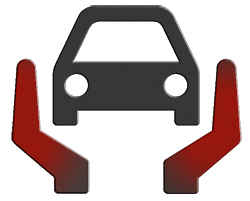What happens if you get pulled over in someone else’s car?

When you get pulled over while driving someone else’s car in the United States, here’s what you should know:
Documentation
You’ll need to provide your driver’s license and the vehicle’s registration documents. If you’re not the owner, make sure you have permission from the owner to drive the car, example: a written authorization or a copy of the registration.
Example: If you borrow a friend’s car and get pulled over, having a signed note from your friend stating you have permission to use the vehicle can be helpful.
Insurance
Ensure that the car is insured. Most states require drivers to carry proof of insurance, which should cover the vehicle you are driving. If you’re not listed on the insurance policy, verify if you’re still covered under the policy’s terms.
Example: If you’re driving a relative’s car and are listed as an occasional driver on their insurance, you should be covered. However, policies vary, so it’s wise to check beforehand.
Traffic Violations
Any traffic violations you commit will typically be your responsibility, regardless of who owns the car. This includes speeding tickets, running red lights, or other infractions.
Example: If you get caught speeding in your neighbor’s car, the ticket and any associated penalties would generally apply to you, not the car owner.
Police Discretion
Officers have discretion in how they handle situations involving borrowed vehicles. Being cooperative and having all necessary documents ready can influence how smoothly the traffic stop goes.
Example: If you’re pulled over in a rental car and have all required paperwork (license, rental agreement, insurance), the process can be straightforward.
Legal Responsibilities
In some cases, the owner of the vehicle may also be responsible for violations committed while you’re driving their car, depending on state laws and circumstances like negligence or knowingly allowing someone to drive with known issues (like a suspended license).
Example: If you borrow a car from a friend who knows you don’t have a valid license and you get pulled over, both you and the owner could face legal consequences.
Understanding these points can help ensure a smoother interaction if you ever find yourself driving someone else’s car and facing a traffic stop in the US.
Here are some real-life stories and facts

Story 1: The Borrowed Car with Expired Tags
A man named James borrowed his friend’s car to run some errands. Unbeknownst to him, the car’s registration had expired. When James got pulled over for a routine traffic stop, the officer noticed the expired tags. James was issued a citation for driving an unregistered vehicle. Luckily, he had a text from his friend giving him permission to use the car, which helped clarify the situation. His friend had to pay the fine for the expired registration, but James learned the importance of checking a borrowed car’s registration status.
Story 2: Rental Car Mishap
Susan was on a business trip and rented a car at the airport. On her way to a meeting, she was pulled over for speeding. Susan provided her driver’s license and the rental agreement. The officer checked her documents and issued a speeding ticket. Since the car was rented, there were no issues with insurance or registration. However, Susan had to pay the speeding fine herself. This incident reminded her to always be mindful of speed limits, especially in unfamiliar rental cars.
Story 3: Family Loan Gone Wrong
Alex borrowed his cousin’s car to drive to a nearby city. During the trip, he was pulled over for a broken taillight. The officer asked for his license and the car’s registration. Alex had his license but didn’t have any proof that he was allowed to drive his cousin’s car. The officer was suspicious and called his cousin to verify Alex’s story. Fortunately, his cousin confirmed that Alex had permission to use the car, and Alex was let go with a warning to fix the taillight. This experience taught Alex to always ensure he has all necessary documents when borrowing a vehicle.
Story 4: The Insured Driver
Maria borrowed her sister’s car to go shopping. She was confident everything was in order since her sister had a valid registration and insurance. However, Maria got pulled over for running a stop sign. The officer asked for her license, registration, and proof of insurance. Maria provided all the documents, and it turned out that her sister’s insurance policy did cover occasional drivers. Maria received a ticket for the traffic violation but faced no additional complications. This highlighted the importance of understanding the insurance policy when driving someone else’s car.
Story 5: College Road Trip
A group of college friends decided to go on a road trip, using one of the friend’s parents’ car. They were pulled over for a routine check. The driver, Tom, had his license, but the car’s registration and insurance were in the glove compartment. When asked, Tom explained that the car belonged to his friend’s parents. The officer ran the car’s information and found everything to be in order. The group was allowed to continue their trip, but they realized the importance of carrying all necessary documents and knowing where they are kept in the vehicle.
Facts


Insurance Coverage:
In many states, the car owner’s insurance policy typically covers any licensed driver who has permission to drive the vehicle. However, it’s essential to verify the specifics of the insurance policy to avoid unexpected issues.
Registration Requirements:
Driving a car with expired registration can result in fines and citations, regardless of whether you’re the owner or a borrower.
Traffic Violations:
Traffic violations committed while driving someone else’s car are usually the responsibility of the driver at the time of the infraction.
Proof of Permission:
Having written permission or a way to quickly verify your right to use the car can be crucial in avoiding misunderstandings during a traffic stop.












